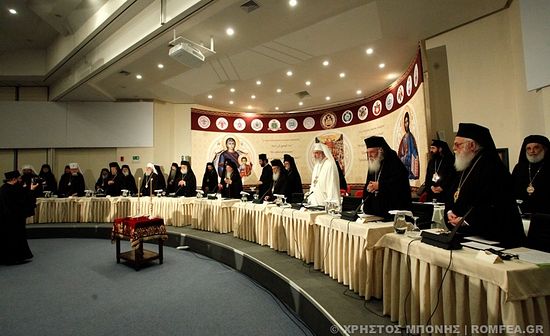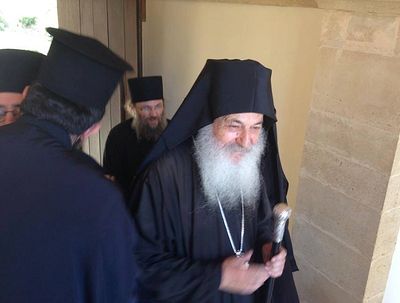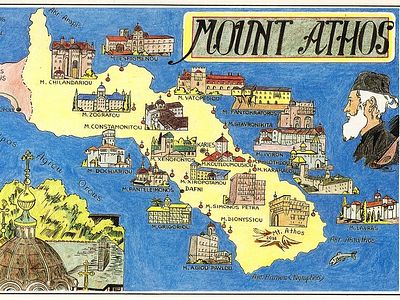Source: Agionoros.ru
Mt. Athos, January 12, 2017
Agionorus.ru introduces readers to the conclusion of the commission of the Sacred Community of Mt. Athos on the results of the Crete Council. The document was sent to members of the Holy Community on November 13/26, 2016, but is being published only now.
Provided here are the main points of a lengthy document, compiled by Hieromonk Chrysostomos of Koutloumousiou, Hieromonk Luke of Grigoriou, Archimandrite Joseph, abbot of Xeropotamou, Archimandrite Elisha, abbot of Simenopetra, and Archimandrite Tikhon, abbot of Stavrnokikita:
1. Among the positive aspects of the Crete Council we can point to the possibility for freely expressing one’s opinion and the “exemplary conducting” of the sessions by Patriarch Bartholomew of Constantinople.
2. The majority of the bishops went to the council in order to “express the self-consciousness of the One, Holy, Catholic, and Apostolic Church, and not to welcome and support the ecumenicist position.”
3. “We cannot not note the brilliant attempt to improve the conciliar documents undertaken by the primates and members of the conciliar delegations.”
4. However, some statements in the text “Relations of the Orthodox Church with the Rest of the Christian World” still “allow for a double interpretation and they await a more precise formulation, that the truth would shine forth, the faithful would receive consolation, and arguments and conflicts would stop.” (The statement goes on to offer a significant number of amendments to the text “Relations of the Orthodox Church with the Rest of the Christian World” proposed by the commission of the Sacred Community of Mt. Athos. They will be available in a few days in the full version of the commission’s conclusions, which is being prepared for publication).
5. Athonite monks emphasize that the current divisions and conflicts within the Church “without a doubt contribute to allowing a dual interpretation of the texts of the Crete Council. The ambiguity of these documents creates the prerequisite for interpreting them in an ecumenical spirit and consequently pose a threat to the unity of the Church.”
In conclusion, the Sacred Community’s commission emphasizes that “the documents of the Crete Council must overcome their one-sidedness which is due to the neglect of the theological tradition, traced by the modern God-bearing elders and authoritative theologians, who have looked upon the path of ecumenical dialogue as an ecumenistic deviation from truth. Not only the so-called ‘zealots’ but also sound voices seek the words of truth, to find and ensure rest.”
6. The Athonites call the cessation of commemoration of the Church hierarchy “unjustified for now:” “The documents of the Holy and Great Council contain inaccuracies and deficiencies. However, no union was signed as at Lyons or Florence; not one Orthodox bishop fell into heresy as acknowledged by the Church.” The desire for mass non-commemoration “pleases only the enemies of the Church.”
7. “We look with hope for further theological revisions and more accurate formulations of the conciliar documents,” states the final proposition of the commission of the Sacred Community.





